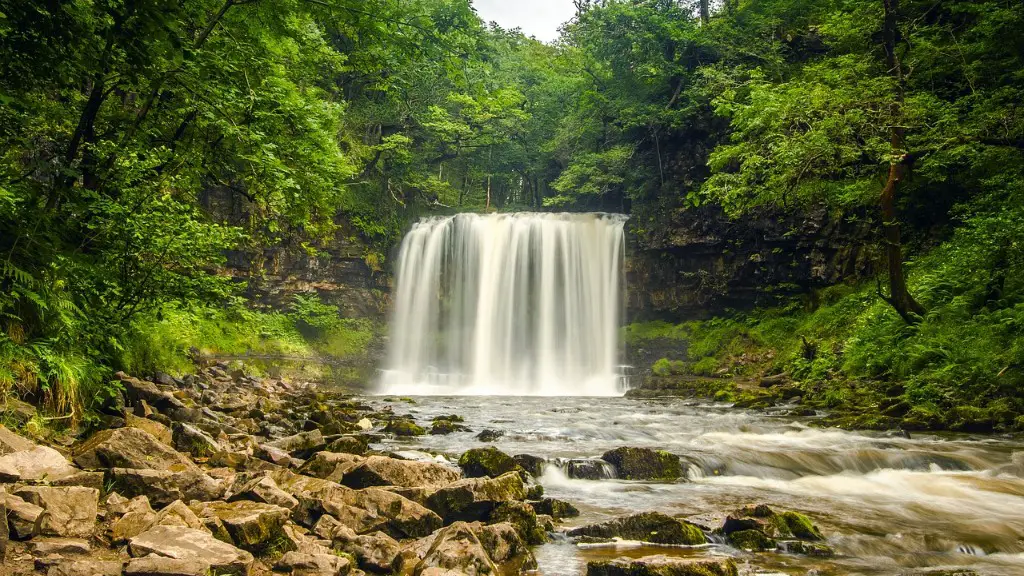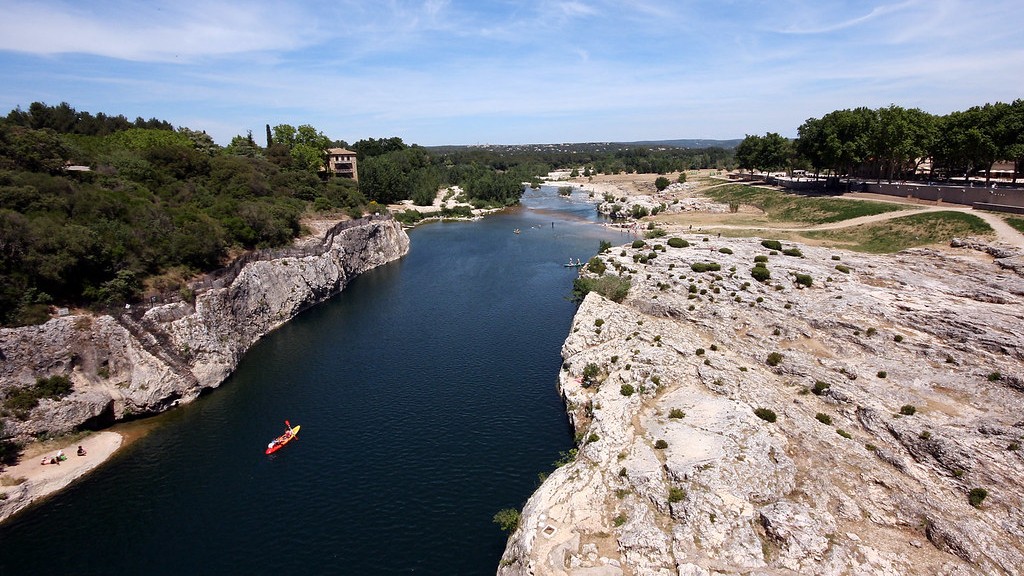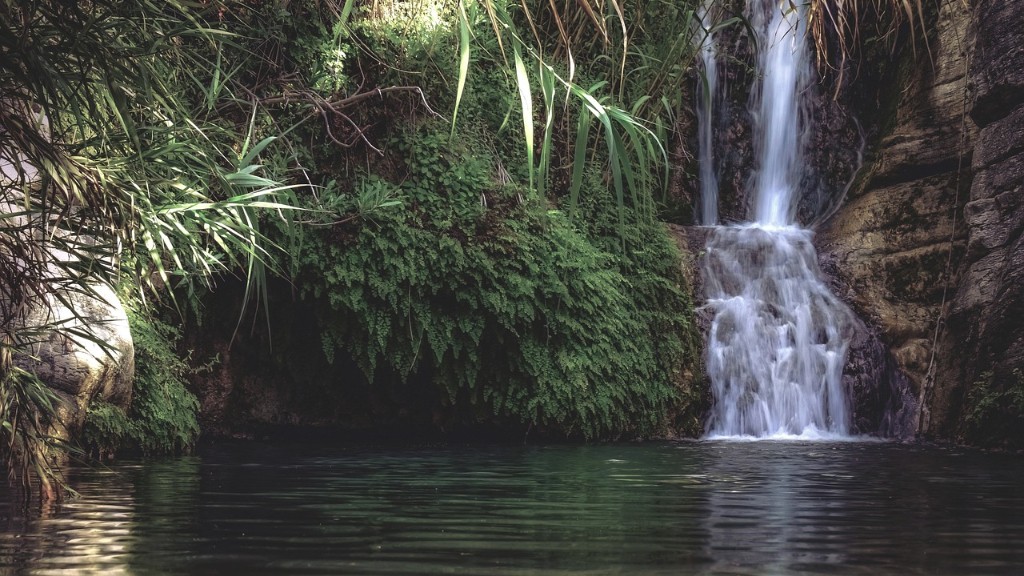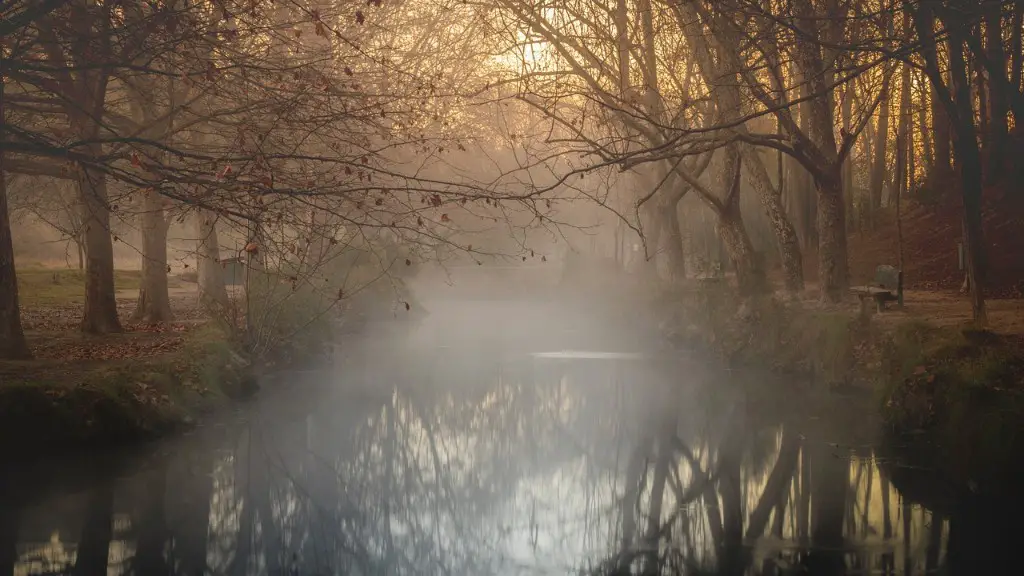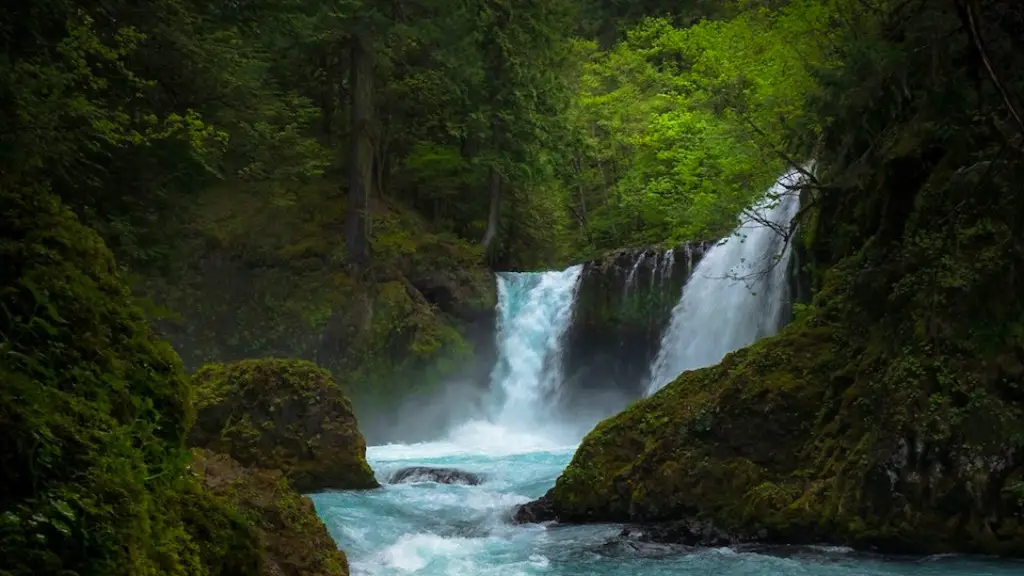The Mississippi River is the second-longest river in the United States, and has played an important role in the country’s history. It has shaped not just the history of the land and its people, but has also influenced the cultural, economic and environmental landscape of the entire United States. But who, exactly, discovered the Mississippi River?
The answer is, it depends on who you ask. For some indigenous people, the Mississippi River has been a part of their lives since time immemorial, and they would be the ones who first “discovered” the river and all its wonders. But for Europeans, the answer to this question is an explorer by the name of Hernando de Soto, who is credited as the first European to discover the Mississippi in 1541.
De Soto, who hailed from Spain, was sent to North America as part of an expedition of discovery, in an attempt to explore and settle the lands of North America. After reaching the Gulf of Mexico, he began his exploration of the region, travelling up the Mississippi and its tributaries far into what is now modern-day Missouri and Arkansas. During his travels, he encountered the native American tribes living along the river and is believed to have been the first to document the region’s native population.
Although his journey up the Mississippi was unsuccessful in terms of the ultimate goal of claiming and settling the land for Spain, his expedition is credited with being the first confirmed Europeans to document and map the Mississippi River and its tributaries. He is also credited with introducing several European commodities to the natives, such as pigs, oranges, sugar and other foodstuffs, which had a lasting impact on indigenous cultures.
Though de Soto is credited with discovering the Mississippi, many historians believe that he was preceded by other Europeans, who may have explored the river before de Soto and even reported on it in writings back to Europe. These reports, however, have not been confirmed or verified, so de Soto remains the only one credited with the discovery of the river.
The discovery of the Mississippi River has had far-reaching consequences in the centuries since. It was instrumental in the exploration and colonization of North America, and in the expansion of the United States. It played an integral role in the development of the country’s economy, bringing new trade and industry to the region. And of course, it is an important part of the culture of the United States, with countless stories and legends attached to it, as well as inspiring songwriters, artists, and writers throughout the years.
Today, the Mississippi River is a vital part of the American landscape. It is a symbol of the country’s history, a source of recreation and natural beauty, and a major part of the nation’s infrastructure, providing transportation and power to the many people and cities that line its banks. And although the answer to the question of who discovered it may no longer be an issue of contention as it was centuries ago, the legacy of Hernando de Soto and his explorations of the Mississippi River remain firmly entrenched in American history.
Features and Benefits
The Mississippi River has many features and benefits that have contributed to its importance in the history of the United States. One of the most significant features is the river’s length; at an impressive 2,320 miles, the Mississippi flows through 10 US states, providing water for millions of people. Along its journey, the Mississippi collects rainfall and runoff from its tributaries, making it a vital resource for agriculture and industry in many regions. In addition to its length, the river is also fed by numerous tributaries, providing a reliable source of water.
The Mississippi is also a natural source of transportation, connecting inland states to the ocean. From its great headwaters in Minnesota to its mouth in the Gulf of Mexico, the river has been an important trade route, offering access to new frontiers of opportunity. It is also home to an array of wildlife, providing an important ecosystem for fish, birds, and other animals.
Lastly, the Mississippi is a source of recreation for those living along its banks. Canoeing, fishing, and other recreational activities are popular on its waters, giving citizens a chance to connect with nature and each other. In addition, the river’s natural beauty has been the source of inspiration for many writers, painters, and musicians.
Environmental Impact
Although the Mississippi River has had a long history of economic and cultural importance, it has also had a considerable environmental impact. Over the years, the river’s banks have been the site of pollution, due to industrial runoff and the dumping of untreated waste. In addition, the construction of hydroelectric dams along the river has adversely affected many of the fish and wildlife populations living in the area.
The Mississippi is also vulnerable to flooding and other natural disasters, which can cause great destruction to the property and livelihood of those living nearby. Fortunately, various organizations and individuals have taken action to improve the environmental health of the river in recent years. The US Army Corps of Engineers has been working to reduce pollution and increase river flows, and the US Environmental Protection Agency has established standards for wastewater treatment to ensure that the Mississippi continues to be a safe and viable resource for future generations.
In addition, many organizations have been working to preserve the Mississippi’s natural beauty and cultural significance, as well as to protect and restore its fragile ecosystems. These efforts have helped to ensure that the Mississippi remains an important part of the American landscape.
Economic and Political Significance
Besides its important environmental, cultural, and recreational significance, the Mississippi River is also, and has been, an important source of economic activity. The river’s navigable waters have been used by commercial and industrial users to transport goods and resources, while fishing and hunting along its banks provide essential income for many small businesses and farmers.
The river has also been a source of political power, as its many settlements along its banks have always been influential in local and national politics. During the nineteenth century, the Mississippi was a focal point for the US-Mexico border dispute, as well as for many other disputes involving the ownership of land located along the river’s banks. Even today, the Mississippi remains an important factor in political discourse and decision-making.
The Mississippi River is an integral part of the United States and its history, with its discovery and subsequent exploration by the Spanish explorer Hernando de Soto and subsequent economic, political and environmental consequences. It remains a vital source of both economic and cultural importance and continues to be an important feature of the American landscape.
Historical Context
The Mississippi River has played an important role in the cultural, economic and environmental landscape of the United States for centuries. For example, during the 19th century, the Mississippi was a major battleground for the US-Mexico border dispute, as well as for numerous other disputes involving the ownership of land situated along the river’s banks. Additionally, the Mississippi has been an important transportation and trade route for generations, connecting inland states to the Gulf of Mexico.
The river has been an integral part of the US economy since the early days of exploration and settlement. It has seen numerous industries, from cotton mills to barge companies, spring up along its banks, while recreational activities such as canoeing, fishing and boating are popular activities among those living nearby. The river is also home to an array of wildlife, offering an important ecosystem for fish and birds, and its natural beauty has inspired writers, painters, and musicians throughout the years.
In addition to its environmental, cultural and economic significance, the Mississippi has been an important factor in US political discourse and decision-making. The river is not only a crucial source of water, but also a powerful symbol of how the power dynamics and social order of the United States have evolved over time. a symbol of the country’s history, a source of recreation and natural beauty, and a major part of the nation’s infrastructure, providing transportation and power to the many people and cities that line its banks.
Cultural Significance
The Mississippi River has had a great impact on the cultural fabric of the United States, inspiring writers, painters, and musicians throughout the years. It has become the subject of numerous stories and songs, from folk tales and epic poems to traditional folk songs and the blues. For example, the blues originated along the Mississippi, with its rhythms and sounds embodying the hardships, joys, and sorrows of African American life in the South.
In addition to its influence on music, the Mississippi River has been an important source of inspiration for literature as well. Throughout the centuries, many writers, including Mark Twain and William Faulkner, have used the river as the main setting for their stories, creating an immortal legacy of literature that reflects the culture of the United States.
In more recent times, the Mississippi has been featured in popular films and television shows, such as Huckleberry Finn and The Adventures of Tom Sawyer, further cementing its place in the cultural landscape of the country. The Mississippi continues to be an important part of American culture and its legacy remains firmly entrenched in its stories and songs, literature, and memories.
Final Analysis
In conclusion, the discovery of the Mississippi River by Spanish explorer Hernando de Soto has had profound implications for the United States, both in terms of its history and its culture. It has been an important source of transportation and trade, providing access to new frontiers of opportunity. It has also been an inspiration to many artists and musicians, with its rhythms and sounds embodying the struggles and joys of life in the South. Lastly, the river is a vital source of recreation and natural beauty, offering communities along its banks a connection to the outdoors and to each other.
For centuries, the Mississippi has been an integral part of the American landscape, and its importance to the country’s history and culture is undeniable. Despite the environmental challenges it has faced over the years, the Mississippi River remains an enduring symbol of the United States and its spirit.
